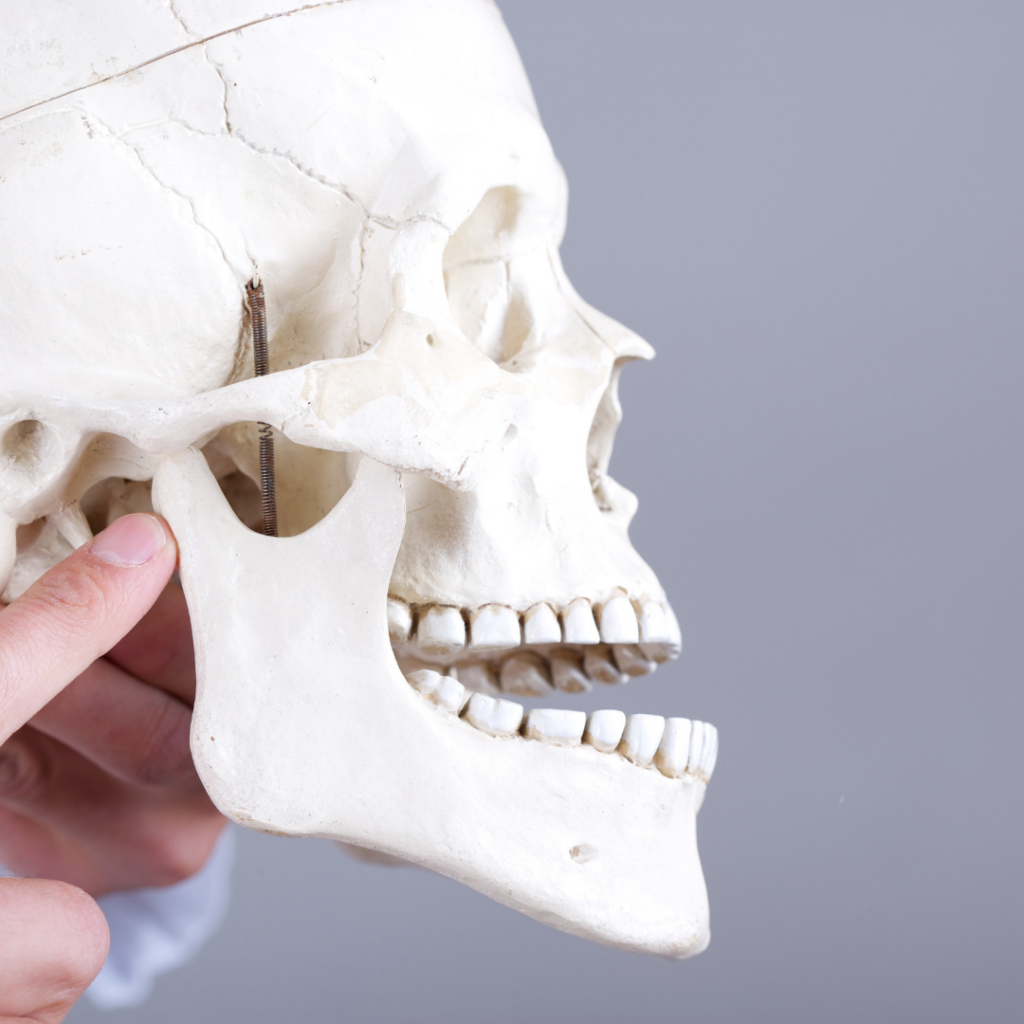TMJ TREATMENT IN DUBAI
Temporomandibular joint treatment
TMJ is known as the ‘temporomandibular joint’ which is where your lower jaw meets the skull. It enables humans to close and open mouths, speak, yawn, and chew.
Pain and dysfunction of the muscles of mastication (the muscle that moves the jaw) and temporomandibular joints, otherwise known as TMD (temporomandibular joint disorder), will lead to limited jaw movement, will affect your ability to speak and chew.
Although it is not life threatening, if you are experiencing any of the above, you must see a specialist to determine your condition and get professional help.

What are the symptoms
of TMJ / TMD?
- Jaw pain while opening and closing the mouth.
- Stuffiness or ringing in the ears causes discomfort.
- Headaches or neck pains on a regular basis.
- A clicking or popping sound is made during the jaw movement.
- Swelling of the face around the joint
- Muscle spasms occur as the jaw opens and closes
- Difficulties in opening and closing the mouth. (locked jaw)
- The bite of the teeth changes.
FAQ
The options for TMJ Treatment in Dubai vary for every patient. Some may need a night guard, while others may require surgery after diagnosis.
A night guard is a dental appliance that is meant to be worn while you sleep to protect your teeth from any teeth grinding (bruxism) while sleeping. This is recommended if teeth grinding is causing your TMJ issue.
If there are minor discomforts, an orthodontist may examine to establish if you have any malocclusions and design your smile journey with a treatment plan that shows how your teeth will become perfectly aligned and prevent the TMJ issues.
This includes orthodontic treatment using Invisalign or braces (metal, clear or lingual braces). By doing so, any misalignments that cause irregular jaw movements will be fixed.
With complex cases, an oral and maxillofacial surgeon is best to visit. They may suggest surgery for your case which will help reconstruction of your jaw.
During your treatment process, follow-ups and regular checkups are highly recommended to ensure that you are on the right path and there is no discomfort.
The aim of our dental specialists is to guarantee a lifetime of a healthy smile that enhances your life in several aspects, bringing great benefits through both the appearance and functionalities of your smile.
Having TMJ is not a serious disorder that could affect your overall health, however, it does involve chronic pain which you may want to put an end to.
The tension left in your jaw muscles could create a great amount of discomfort throughout your daily life. If the TMJ issue is caused by teeth grinding then leaving it untreated will lower the quality of your sleep and may even disrupt your sleep cycle. Additionally, it is found that this is associated with psychological stress.
Furthermore, leaving your TMJ untreated could damage your teeth if you are constantly teeth grinding and clenching. This is due to the pressure being pressed upon the teeth which will wear down the enamel and may shorten your teeth as it is being pushed into your gums. In this case, a night guard is highly recommended.
If you are feeling restricted from opening your mouth, this could mean that you have a temporomandibular joint disorder, also known as temporomandibular joint dysfunction.
This is the feeling where your mouth does not want to close or open fully. You may also be feeling that the jaw gets stuck while opening your mouth or hear a clicking sound when opening. You should visit a dentist to best diagnose your dental case and determine the most suitable treatment option for you.
There is a strong relation between teeth grinding and clenching towards TMJ issues. Teeth grinding is also known as bruxism. As you use your jaw muscles excessively, it may lead to the restriction of those muscle movements.
Overall, teeth grinding can be a key factor to one of the causes of TMJ dysfunctions, however, there is no exact connection.
Clenching your teeth while awake is found to be related to stress or anxiety factors. Similarly, sleep bruxism consists of teeth grinding while sleeping and is thought to be caused by psychological factors such as stress.
A temporomandibular joint disorder does involve aching by the ears which could result in headaches as it involves the supporting muscles. It is important to try and relax the muscles in your jaw and avoid any clenching.
This is a common mistake where TMJ is misinterpreted as a headache. If you inaccurately treat your TMJ by trying to find medications to prevent your headaches, you may have temporary relief from the pain however, the pain and discomfort will eventually return and keep recurring.
If you notice the intensity of pain in your jaw increases, a night guard could be recommended by a dentist as you may be teeth grinding unconsciously in your sleep. One possible factor to this is stress, where stress management could also be done for short-term purposes to help your TMJ.
